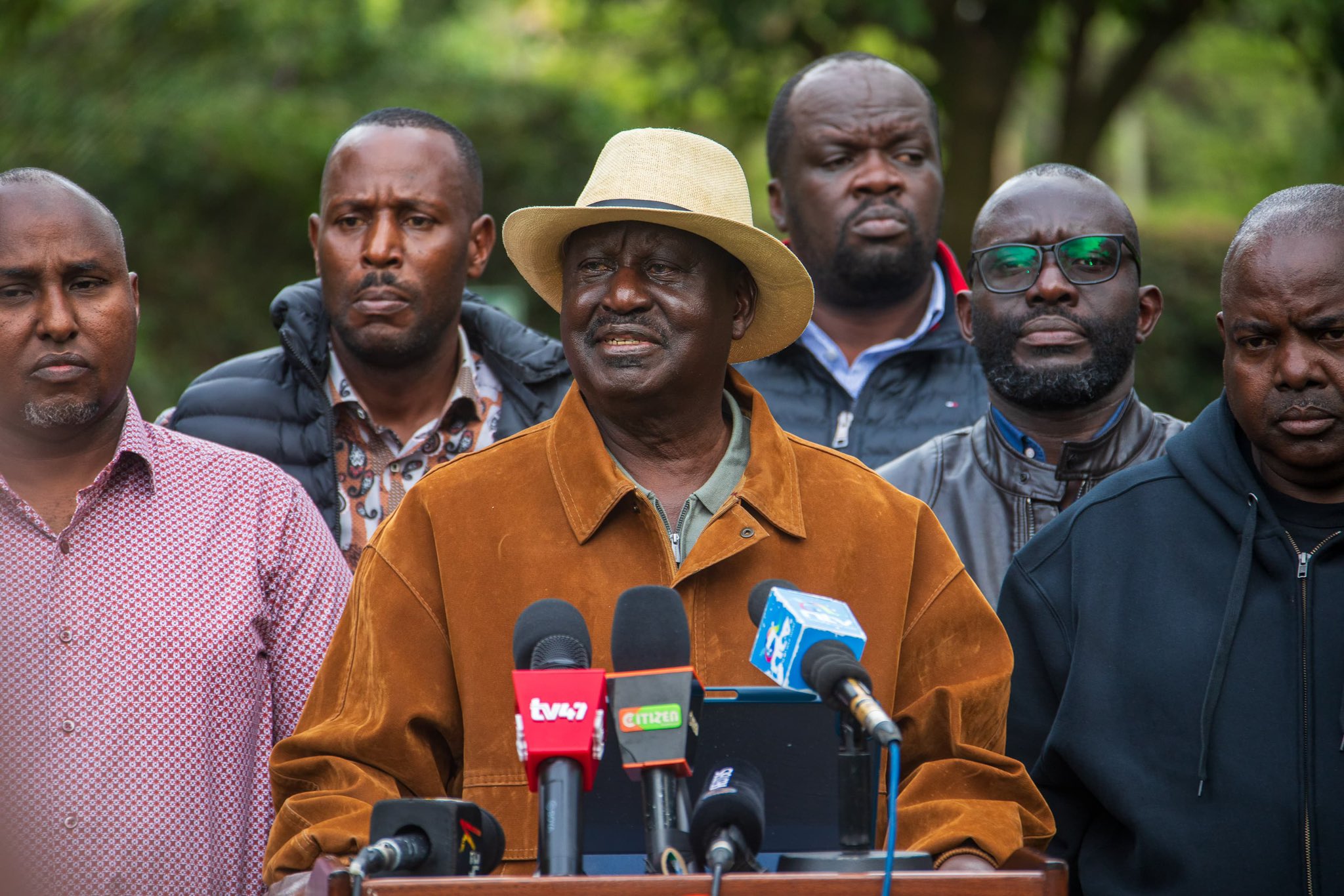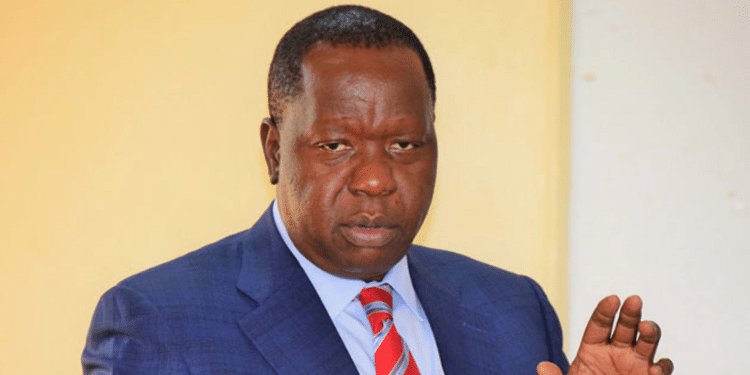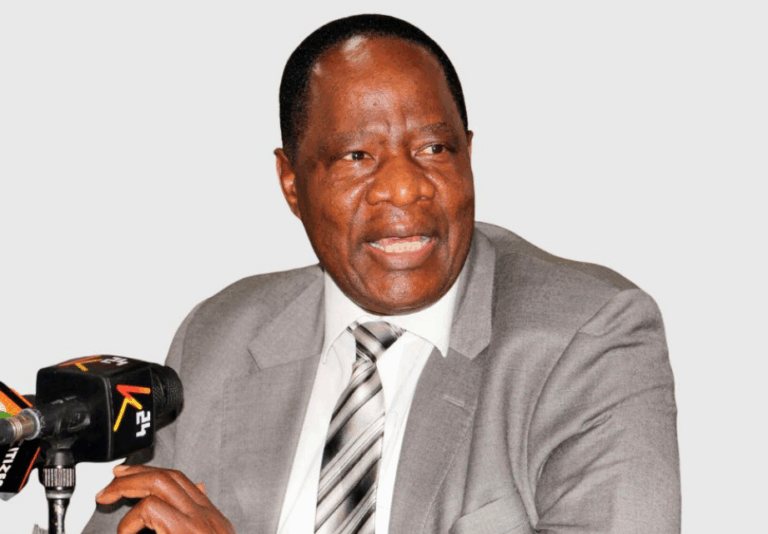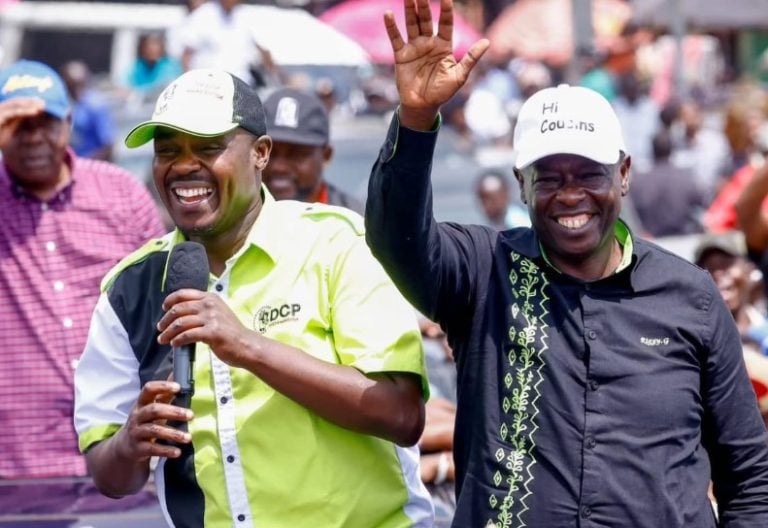
ODM leader Raila Odinga and his allies addressing a press conference in Nairobi on Monday, 7 July, 2025. Photo/Raila Odinga/X
By Newsflash Writer
Opposition leader Raila Odinga has called for a national dialogue to address Kenya’s worsening political, economic, and governance challenges, urging for a return to the spirit and unity that defined the historic Saba Saba movement of 1990.
Speaking during a press conference in Nairobi to mark the 35th anniversary of Saba Saba on Monday, Raila lamented that while the day marked a turning point in the country’s struggle for multiparty democracy, its recognition has become inconsistent and politicized.
“One moment it is important. The next moment it is not,” he said, warning that Kenya risks losing the spirit of collective action that defined the original Saba Saba uprising.
Raila recalled how on July 7, 1990, thousands of Kenyans defied the Moi-KANU regime’s restrictions to gather at Kamukunji Grounds and demand the repeal of Section 2A of the Constitution, which had entrenched one-party rule. “Saba Saba had a singular purpose – the repeal of Section 2A and the return of multiparty democracy,” he said.
The protest, he noted, led to the formation of the Forum for the Restoration of Democracy (FORD), a powerful national movement that united leaders from across political, religious, academic, and social spheres.
“It was not one group against the entire nation. It was not one age group against another. It was a people’s struggle for good governance, freedom, and equal opportunity,” he said. “Saba Saba was inclusive, democratic and intergenerational.”
A call for unity
Addressing the current wave of unrest led largely by youth and dubbed the “Gen Z movement,” Raila emphasized that Kenya is once again at a crossroads. “Thirty-five years later, the country is grappling with a new wave of unrest and political activism,” he said. “The question we have to ask ourselves is: where do we go from here?”
Instead of descending into chaos, Raila urged the nation to come together for a “national dialogue”—a platform for inclusive, intergenerational discourse on reforms necessary to chart a new future.
“I propose an inclusive national conclave to hear our people across all divides and come up with irreducible reforms to take the country forward,” Raila stated. He emphasized that such a forum should be led by sober, respected minds and have clear terms of reference, with its outcomes subjected to a national referendum.
Read more: Gachagua ally Gitonga Mukunji arrested over Saba Saba protests
The former prime minister laid out several key priorities for the proposed dialogue: comprehensive police reforms focusing on accountability and improved police-community relations, the fight against corruption, institutional reforms to strengthen judicial independence and executive accountability, and most critically, a robust strategy to tackle youth unemployment.
“Kenyans are yearning for programs and leaders that prioritize economic inclusivity, social justice, and political freedom,” he said. “We must end impunity and corruption within our three arms of government. Our leaders must become modest, ethical, humble, and accountable.”
A return to national purpose
Raila maintained that the values fought for during the original Saba Saba protests—freedom of expression, justice, and equality—remain just as relevant today as they were in 1990. While the repeal of Section 2A and the 2010 Constitution were major milestones, he argued, the economic and social realities many Kenyans face today show that much work remains.
“The biggest challenge facing Kenya today is how to expand economic opportunity and lift particularly young Kenyans out of poverty, exclusion, and unemployment,” Raila said.
Read more: Saba Saba: Schools, businesses brace for possible disruptions
In calling for a national conversation, Raila made it clear that he sees this not as a partisan initiative but as a patriotic duty: “As a living architect of the events leading to Saba Saba, I choose a coming together of minds and country in the interest of the nation I long fought for.”
He concluded with a warning against those trying to “hide behind Saba Saba” for political gain, calling instead for a sincere and focused recommitment to the Kenyan dream of equality, prosperity, and justice for all.
“The proceeds of this dialogue must be subjected to a referendum,” he said, adding, “We owe it to the dreamers of Saba Saba and the generations to come.”



